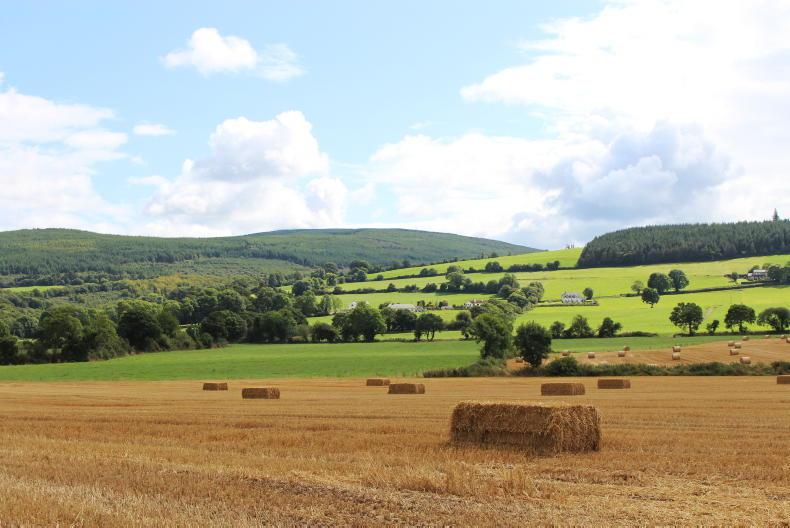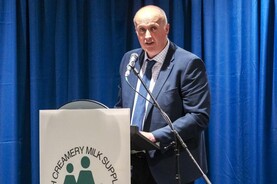Reacting to Ag Climatise, the Department of Agriculture’s plan to cut emissions in the sector, IFA president Tim Cullinan said that farmers stand committed to reducing emissions.
The focus must be on supporting farmers
Cullinan highlighted: “In 2019, emissions from agriculture were down by 3.9%, and more can be achieved by adopting a range of measures, particularly those outlined in Teagasc’s Marginal Abatement Cost Curve (MACC).
“There is already significant uptake of these measures. The focus must be on supporting farmers to adopt specific mitigation measures and technologies to improve productivity and efficiency on farms.”
New duties
The IFA president has called for the diversion of discussion away from reducing livestock numbers in the climate change debate.
Cullinan continued: “There is no such thing as the national herd. Every animal is owned by an individual farmer who is trying to make a living. It is about supporting these farmers to improve efficiency so they can farm more sustainably.
What farmers would have problems with, is a road map that featured page after page of likely new duties, regulations and costs
“Farmers are already doing a lot, adhering to cross-compliance measures, while over 50,000 participate in the GLAS scheme.”
Similarly, ICMSA president Pat McCormack said that farmers would have little difficulty accepting the scale of the challenges or the need for decisive remedial actions.
McCormack said: “What farmers would have problems with, is a road map that featured page after page of likely new duties, regulations and costs on farmer primary-producers without even once mentioning the reformation of margins.
“The road map persisted with the delusion that all the necessary change to our farming and food production system could happen from the supermarket loading bay backwards to the farm.”
Contrasting views
The ICMSA said that any plan to push through measures outlined in the Ag Climatise report that did not start with a recognition of the low price of food to the consumer was both doomed to failure and inherently unfair.
In contrast, Dairy Industry Ireland (DII) said it commits to and will support the delivery of the strategies and objectives in the policy, to achieve lower emissions for the dairy and food sector.
DII director Conor Mulvihill said: “The Ag Climatise programme should build on the internationally recognised existing carbon efficiencies of the Irish dairy sector.
“We welcome that all of these approaches contained in the document, and we want the ambition of the plan to be matched with proper funding and coordination to achieve the targets.”
Read more
Limit to fertiliser use in Department’s climate change plan
DAERA sets out two options for NI climate legislation
Teagasc livestock road maps greened up
Reacting to Ag Climatise, the Department of Agriculture’s plan to cut emissions in the sector, IFA president Tim Cullinan said that farmers stand committed to reducing emissions.
The focus must be on supporting farmers
Cullinan highlighted: “In 2019, emissions from agriculture were down by 3.9%, and more can be achieved by adopting a range of measures, particularly those outlined in Teagasc’s Marginal Abatement Cost Curve (MACC).
“There is already significant uptake of these measures. The focus must be on supporting farmers to adopt specific mitigation measures and technologies to improve productivity and efficiency on farms.”
New duties
The IFA president has called for the diversion of discussion away from reducing livestock numbers in the climate change debate.
Cullinan continued: “There is no such thing as the national herd. Every animal is owned by an individual farmer who is trying to make a living. It is about supporting these farmers to improve efficiency so they can farm more sustainably.
What farmers would have problems with, is a road map that featured page after page of likely new duties, regulations and costs
“Farmers are already doing a lot, adhering to cross-compliance measures, while over 50,000 participate in the GLAS scheme.”
Similarly, ICMSA president Pat McCormack said that farmers would have little difficulty accepting the scale of the challenges or the need for decisive remedial actions.
McCormack said: “What farmers would have problems with, is a road map that featured page after page of likely new duties, regulations and costs on farmer primary-producers without even once mentioning the reformation of margins.
“The road map persisted with the delusion that all the necessary change to our farming and food production system could happen from the supermarket loading bay backwards to the farm.”
Contrasting views
The ICMSA said that any plan to push through measures outlined in the Ag Climatise report that did not start with a recognition of the low price of food to the consumer was both doomed to failure and inherently unfair.
In contrast, Dairy Industry Ireland (DII) said it commits to and will support the delivery of the strategies and objectives in the policy, to achieve lower emissions for the dairy and food sector.
DII director Conor Mulvihill said: “The Ag Climatise programme should build on the internationally recognised existing carbon efficiencies of the Irish dairy sector.
“We welcome that all of these approaches contained in the document, and we want the ambition of the plan to be matched with proper funding and coordination to achieve the targets.”
Read more
Limit to fertiliser use in Department’s climate change plan
DAERA sets out two options for NI climate legislation
Teagasc livestock road maps greened up






 This is a subscriber-only article
This is a subscriber-only article











SHARING OPTIONS: